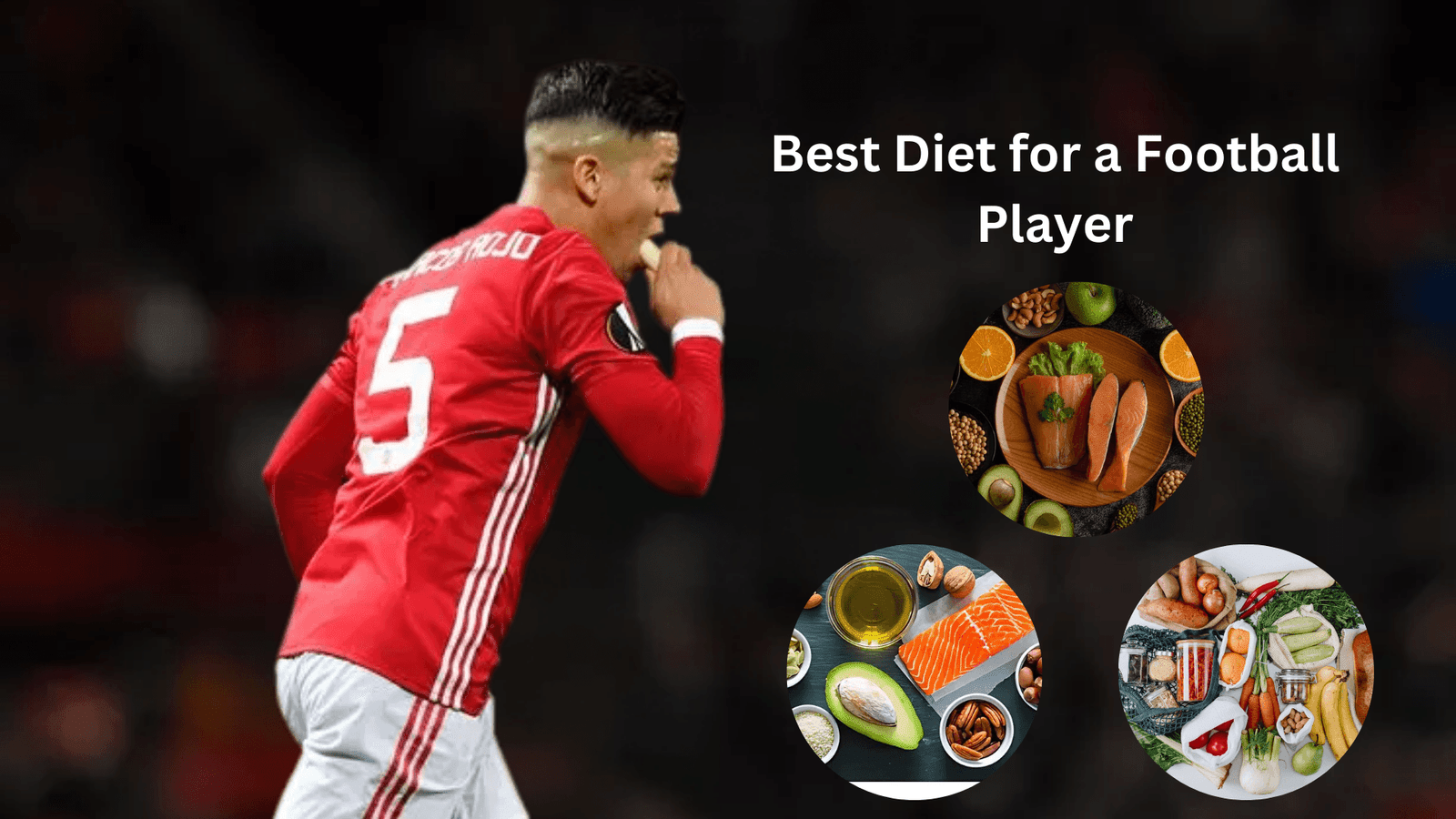
Introduction
A well-structured diet is crucial for football players to enhance performance, support recovery, and maintain overall health. This guide outlines the essential components of a football player’s diet, focusing on carbohydrates, proteins, fats, hydration, and timing.
The Best Diet for a Football Player includes lean proteins, complex carbohydrates, healthy fats, and plenty of hydration to support energy and recovery. A well-balanced intake of nutrients is crucial for the Best Diet for a Football Player to maintain peak performance.
| Food Item | Calories | Quantity |
|---|---|---|
| Breakfast: Oatmeal with Fruit and Nuts | 1,000 | 1 large bowl of oatmeal, 1 banana, 2 tablespoons of almonds |
| Snack: Greek Yogurt with Honey and Granola | 600 | 1 cup of Greek yogurt, 2 tablespoons of honey, 1/2 cup of granola |
| Lunch: Chicken Breast with Quinoa and Vegetables | 1,200 | 1 large chicken breast, 1 cup of quinoa, 1 cup of steamed vegetables |
| Snack: Protein Shake | 400 | 1 serving of protein powder, 1 cup of milk |
| Dinner: Salmon with Sweet Potatoes and Spinach Salad | 1,200 | 1 fillet of salmon, 1 large sweet potato, 1 large spinach salad with dressing |
| Evening Snack: Peanut Butter and Banana Sandwich | 500 | 2 slices of whole grain bread, 2 tablespoons of peanut butter, 1 banana |
| Additional Snack: Mixed Nuts and Dried Fruit | 500 | 1/2 cup of mixed nuts, 1/2 cup of dried fruit |
A healthy diet is fundamental for football players, as it directly impacts their performance, endurance, and recovery. The best food for a football player includes a variety of nutrient-dense options that provide the necessary energy and support muscle growth. Young athletes, in particular, benefit from a good diet that promotes optimal development and athleticism. By focusing on healthy meals, players can enhance their skills on the field and maintain overall well-being.
| Category | Food Examples | Description |
|---|---|---|
| Carbohydrates | Whole Grains, Fruits, Vegetables | Provide energy for training and recovery. |
| Protein | Lean Meats, Fish, Dairy, Legumes | Essential for muscle repair and growth. |
| Healthy Fats | Avocados, Nuts and Seeds, Olive Oil | Support overall health and hormone function. |
| Hydration | Water, Electrolyte Drinks | Crucial for maintaining performance. |
| Pre- and Post-Workout | Pre: Banana with Peanut Butter, Post: Smoothie | Pre snacks rich in carbs and protein; Post meals aid recovery. |
Carbohydrates
Carbohydrates are the primary source of energy for athletes. They fuel intense training sessions and matches, making them a vital part of a football player’s diet.
Nutritious Carbohydrate Sources for Football Players
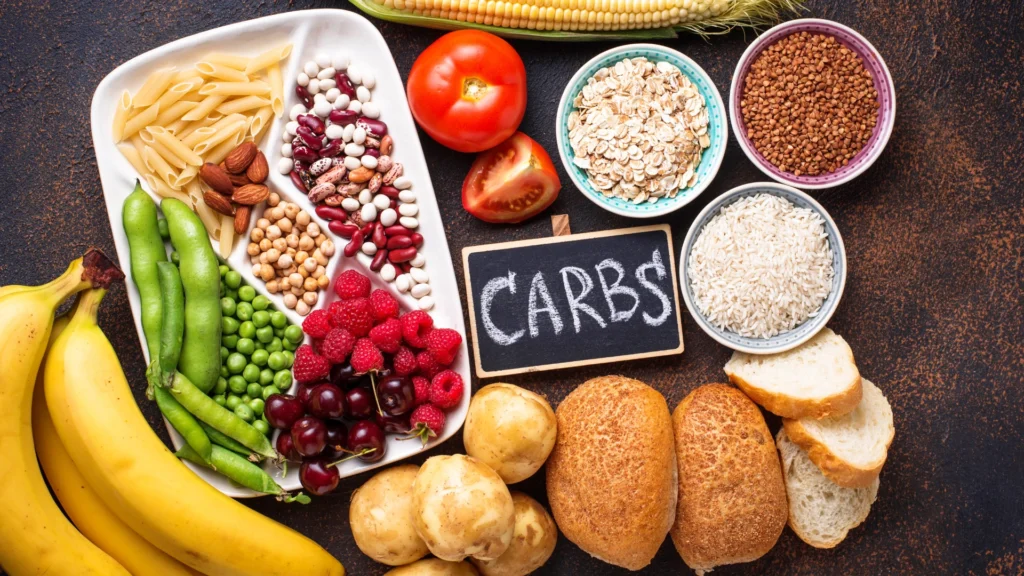
Whole Grains: Brown rice, quinoa, whole grain bread, and oats
Fruits: Bananas, berries, apples, and oranges
Vegetables: Sweet potatoes, leafy greens, and carrots
| Category | Description |
|---|---|
| Whole Grains | Provide essential carbohydrates and fiber for energy and digestion. |
| Fruits | Offer vital vitamins, minerals, and antioxidants for overall health. |
| Vegetables | Rich in vitamins, minerals, and fiber, crucial for health. |
Lean Proteins
Lean proteins are essential for muscle repair and growth. They help in recovery after intense physical activity.
Benefits of Lean Proteins
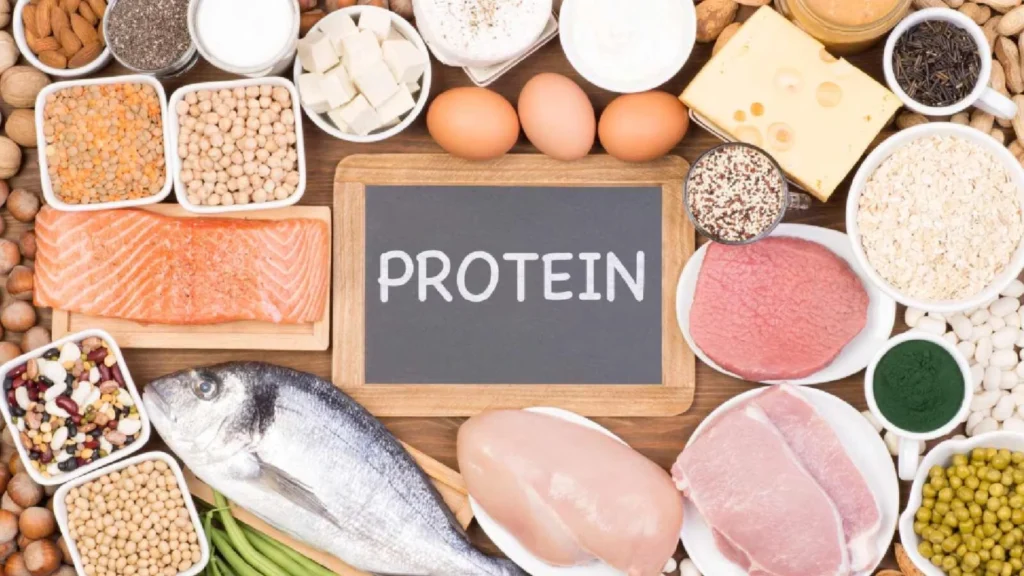
- Muscle Repair and Growth: Lean proteins are rich in amino acids, which are the building blocks of muscle. Consuming adequate protein helps repair muscle tissue after intense training and supports muscle growth.
- Weight Management: Lean proteins can aid in maintaining a healthy weight by promoting satiety and helping to control hunger. They can also help preserve lean muscle mass during weight loss.
| Benefit | Description |
|---|---|
| Muscle Repair | Essential amino acids for muscle repair after training. |
| Weight Management | Promotes fullness and preserves muscle during weight loss. |
Excellent Sources of Lean Proteins
| Category | Examples |
|---|---|
| Poultry | Chicken breast, Turkey breast |
| Fish | Salmon (also provides healthy fats), Tuna, Cod, Tilapia |
| Lean Cuts of Meat | Lean beef (e.g., sirloin, tenderloin), Pork tenderloin |
| Dairy Products | Greek yogurt, Cottage cheese, Low-fat milk |
| Plant-Based Proteins | Legumes (e.g., lentils, chickpeas, black beans), Tofu and tempeh, Edamame, Quinoa |
| Eggs | Whole eggs and egg whites (egg whites are low in fat) |
Poultry:
Chicken breast
Turkey breast
Fish:
Salmon (also a source of healthy fats)
Tuna
Cod
Tilapia
Lean Cuts of Meat:
Lean beef (e.g., sirloin, tenderloin)
Pork tenderloin
Dairy Products:
Greek yogurt
Cottage cheese
Low-fat milk
Plant-Based Proteins:
Legumes (e.g., lentils, chickpeas, black beans)
Tofu and tempeh
Edamame
Quinoa
Eggs:
Whole eggs and egg whites are excellent protein sources, with egg whites being particularly low in fat.
Incorporating Lean Proteins for Football Players
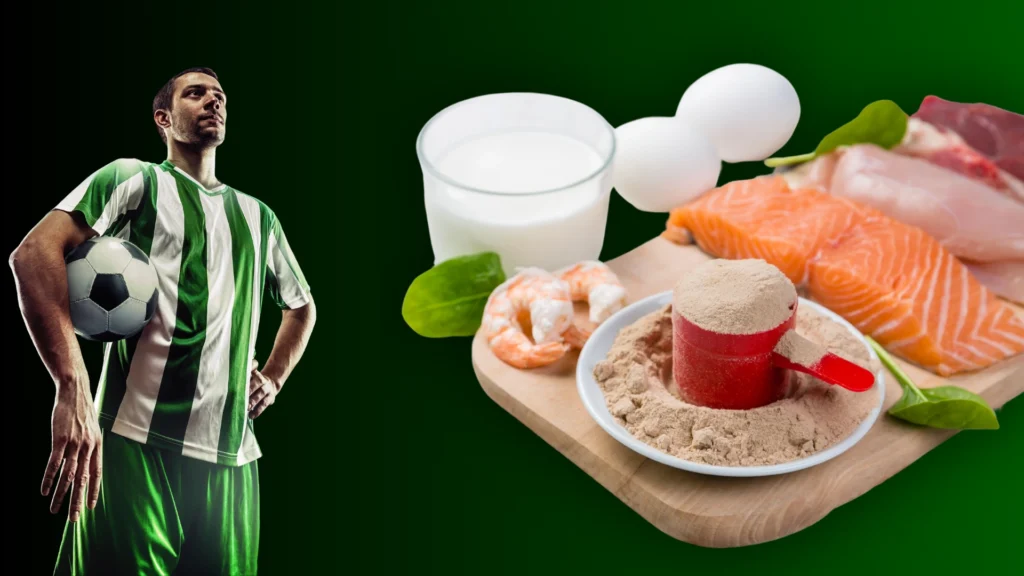
Sources: Chicken breast, turkey, lean beef, fish, eggs, Greek yogurt, and legumes
Aim for 20-30 grams of protein per meal to support muscle recovery.
Nutritional Values of Footballers Diet Plan
A balanced diet for football players should include:
Carbohydrates: 55-65% of total caloric intake
Proteins: 15-20% of total caloric intake
Fats: 20-30% of total caloric intake
| Macronutrient | Percentage |
|---|---|
| Carbohydrates | 55-65% |
| Proteins | 15-20% |
| Fats | 20-30% |
Benefits of Including Footballer Diet Plan
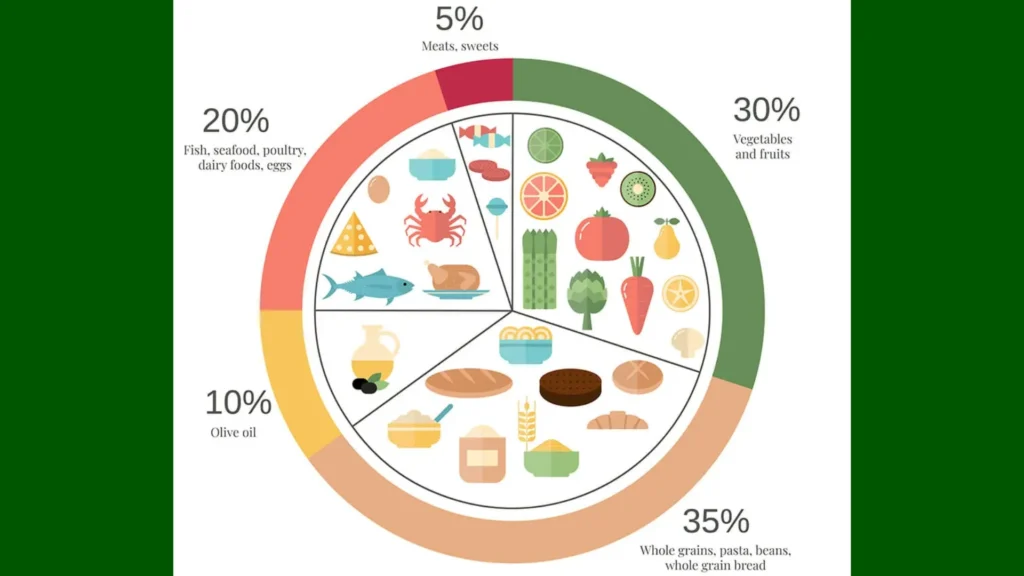
Enhanced performance and endurance
Improved recovery times
Reduced risk of injury
Better overall health and well-being
Foods That Are Must in Meal Plan for Football Player Diet Plan
Carbohydrate-Rich Foods: Whole grains, fruits, and vegetables
Lean Proteins: Chicken, fish, legumes, and dairy
Healthy Fats: Avocados, nuts, seeds, and olive oil
| Category | Examples |
|---|---|
| Carbohydrate-Rich Foods | Whole grains, fruits, and vegetables |
| Lean Proteins | Chicken, fish, legumes, and dairy |
| Healthy Fats | Avocados, nuts, seeds, and olive oil |
Carbohydrate-Rich Foods (Simple and Complex)
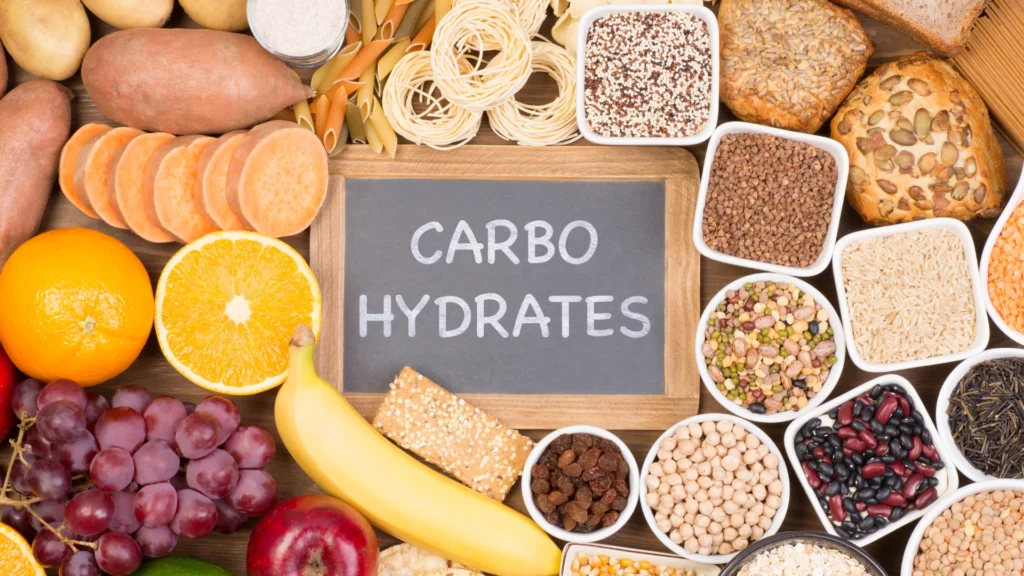
| Type of Carbohydrate | Examples |
|---|---|
| Simple Carbohydrates | Fruits, honey, and sports drinks for quick energy |
| Complex Carbohydrates | Whole grains and starchy vegetables for sustained energy |
Simple Carbohydrates: Fruits, honey, and sports drinks for quick energy
Complex Carbohydrates: Whole grains and starchy vegetables for sustained energy
Focus on These Fats and Fat Sources
Healthy fats are important for hormone production and overall health:
Sources: Olive oil, avocados, nuts, seeds, and fatty fish like salmon
Foods to Limit or Avoid
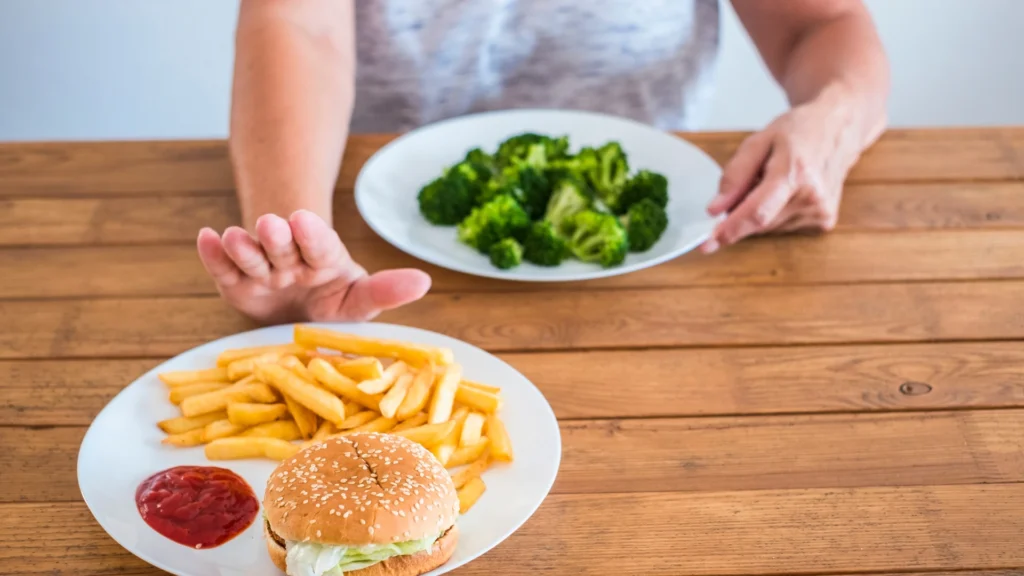
| Type of Unhealthy Food | Examples |
|---|---|
| Processed Foods | Chips, sugary snacks, and fast food |
| High-Sugar Beverages | Soda and energy drinks |
| Excessive Saturated Fats | Fried foods and fatty cuts of meat |
Processed Foods: Chips, sugary snacks, and fast food
High-Sugar Beverages: Soda and energy drinks
Excessive Saturated Fats: Fried foods and fatty cuts of meat
Vitamins and Minerals
Essential vitamins and minerals play a key role in performance and recovery:
Calcium: For bone health (dairy products, leafy greens)
Iron: For oxygen transport (red meat, beans, fortified cereals)
Vitamin D: For bone health and immune function (sunlight, fatty fish)
Hydration

Staying hydrated is crucial for optimal performance
| Hydration Tip | Details |
|---|---|
| Drink Plenty of Water | Ensure you consume adequate water throughout the day to stay hydrated. |
| Electrolyte-Rich Drinks | Consider drinking beverages with electrolytes during intense training or matches to replenish lost minerals. |
Drink plenty of water throughout the day
Consider electrolyte-rich drinks during intense training or matches
Timing and Frequency
| Nutrition Tip | Details |
|---|---|
| Meal Frequency | Eat small, frequent meals every 3-4 hours to maintain energy levels. |
| Pre-Game Nutrition | Consume a carb-rich snack 30-60 minutes before play to fuel performance. |
| Post-Game Nutrition | Focus on a mix of carbs and protein within 30 minutes after exercise for recovery. |
Meal Frequency: Eat small, frequent meals every 3-4 hours
Pre-Game Nutrition: Consume a carb-rich snack 30-60 minutes before play
Post-Game Nutrition: Focus on a mix of carbs and protein within 30 minutes after exercise
Anti-Inflammatory Fats for Football Players
Incorporating anti-inflammatory fats into a football player’s diet can significantly enhance recovery, reduce inflammation, and promote overall health. These fats are essential for maintaining optimal performance and supporting the body’s healing processes. Here’s a closer look at the types of anti-inflammatory fats beneficial for football players:
1. Omega-3 Fatty Acids
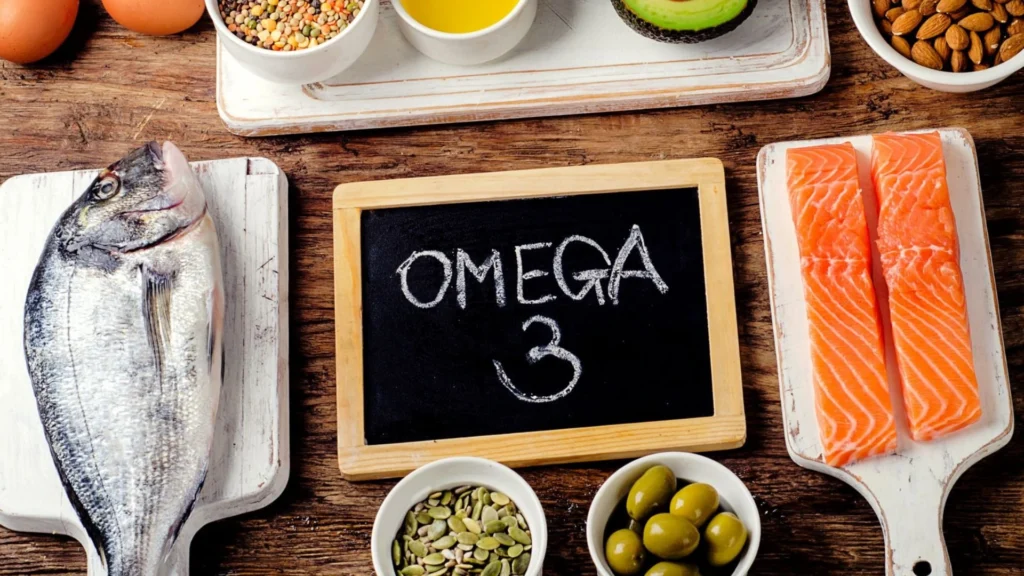
Omega-3 fatty acids are known for their powerful anti-inflammatory properties. They help reduce muscle soreness and joint pain, making them particularly beneficial for athletes.
| Fatty Fish | Salmon, mackerel, and sardines are rich in omega-3 fatty acids. |
| Chia Seeds | These tiny seeds are a plant-based source of omega-3s. |
| Flaxseeds | Flaxseeds are another excellent plant-based source of omega-3s. |
| Walnuts | Walnuts contain a good amount of omega-3 fatty acids. |
| Algal Oil | A plant-based source of omega-3s derived from algae. |
Sources:
Fatty fish (salmon, mackerel, sardines)
Chia seeds
Flaxseeds
Walnuts
Algal oil (a plant-based source of omega-3)
2. Monounsaturated Fats

Monounsaturated fats can help reduce inflammation and are heart-healthy, making them great for overall cardiovascular health.
| Olive Oil | A heart-healthy oil rich in monounsaturated fats. |
| Avocados | High in monounsaturated fats and various nutrients. |
| Nuts | Almonds, cashews, and hazelnuts are rich in healthy fats. |
| Seeds | Pumpkin seeds and sesame seeds are good sources of healthy fats. |
Sources:
Olive oil
Avocados
Nuts (almonds, cashews, hazelnuts)
Seeds (pumpkin seeds, sesame seeds)
3. Polyunsaturated Fats
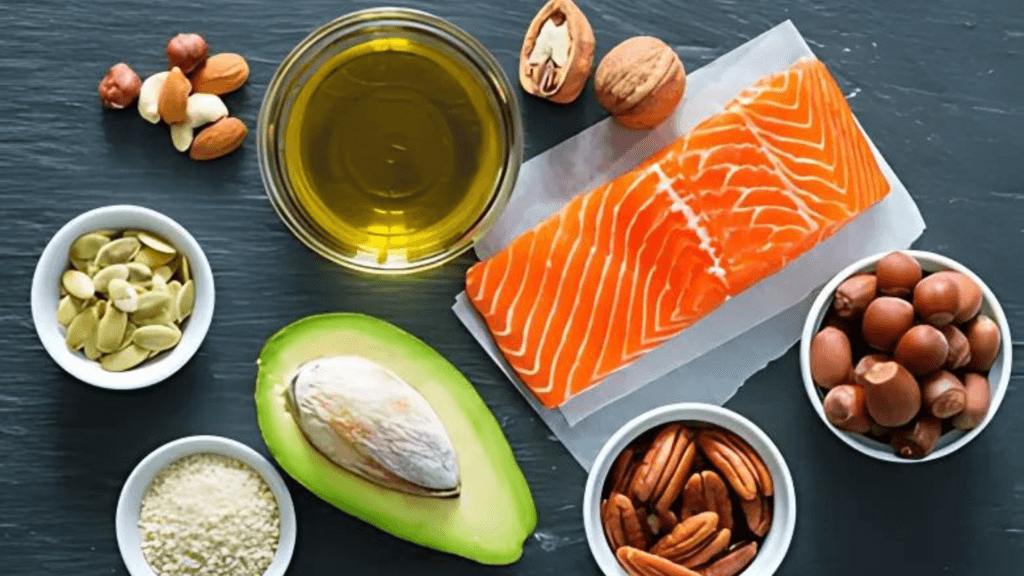
Polyunsaturated fats, including omega-6 fatty acids, can also have anti-inflammatory effects when consumed in moderation and balanced with omega-3 intake.
| Sunflower Oil | A popular cooking oil known for its light flavor and high smoke point. |
| Safflower Oil | Often used in cooking and salad dressings, it has a neutral flavor and high smoke point. |
| Corn Oil | Commonly used for frying and baking, with a mild flavor and high smoke point. |
| Soybean Oil | A versatile oil used in various cooking applications, known for its neutral flavor and high smoke point. |
Sources:
Sunflower oil
Safflower oil
Corn oil
Soybean oil
4. Coconut Oil

While coconut oil is high in saturated fat, it contains medium-chain triglycerides (MCTs) that may have anti-inflammatory properties. It can be used in moderation as part of a balanced diet.
Fats to Limit in Your Diet
While fats are an essential part of a balanced diet, certain types can contribute to inflammation, weight gain, and other health issues. For football players and athletes, it’s important to be mindful of the types of fats consumed. Here’s a guide to the fats you should limit in your diet:
1. Trans Fats
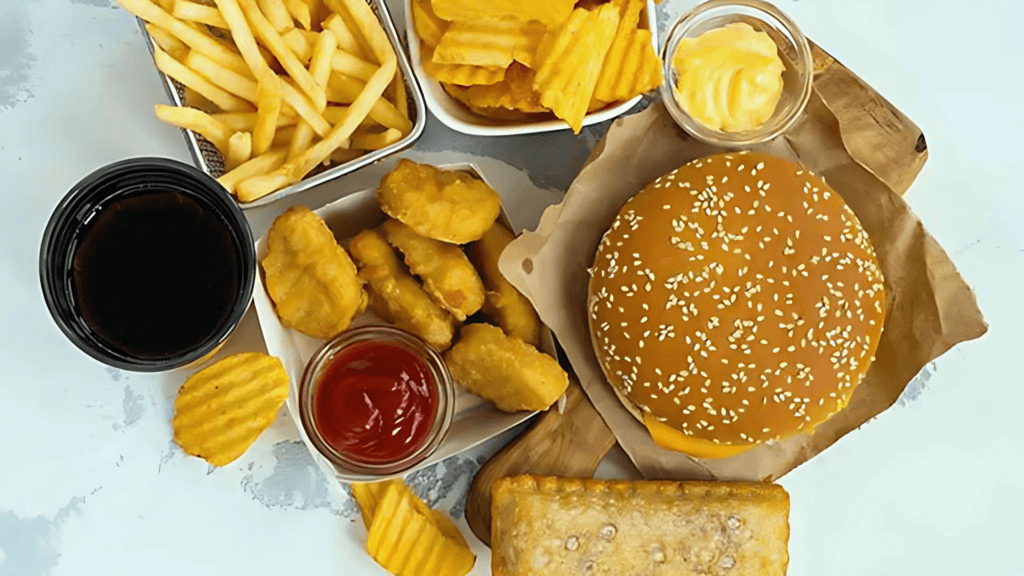
Trans fats are artificially created fats that can raise bad cholesterol (LDL) levels while lowering good cholesterol (HDL). They are linked to an increased risk of heart disease and inflammation.
| Fried Foods | Includes items like doughnuts and fried chicken, which often contain trans fats. |
| Baked Goods | Pastries, cookies, and cakes can be high in trans fats due to the use of margarine and shortening. |
| Margarine and Shortening | Commonly used in baking and cooking, these can contain significant amounts of trans fats. |
| Processed Snack Foods | Chips and microwave popcorn are examples of processed snacks that may contain trans fats. |
Sources:
Fried foods (e.g., doughnuts, fried chicken)
Baked goods (e.g., pastries, cookies, cakes)
Margarine and shortening
Processed snack foods (e.g., chips, microwave popcorn)
2. Saturated Fats

While saturated fats can be part of a healthy diet when consumed in moderation, excessive intake may lead to increased cholesterol levels and heart disease risk.
| Fatty Cuts of Meat | Includes beef, lamb, and pork, which are high in saturated fats. |
| Full-Fat Dairy Products | Cheese, cream, and butter contain significant amounts of saturated fats. |
| Coconut Oil and Palm Oil | These oils are high in saturated fats and should be used in moderation. |
| Processed Meats | Sausages and hot dogs often contain high levels of saturated fats. |
Sources:
Fatty cuts of meat (e.g., beef, lamb, pork)
Full-fat dairy products (e.g., cheese, cream, butter)
Coconut oil and palm oil (use in moderation)
Processed meats (e.g., sausages, hot dogs)
3. Highly Processed Fats

Fats found in highly processed foods often contain unhealthy additives and preservatives. These can contribute to inflammation and other health issues.
| Fast Food and Takeout | Often high in trans fats and saturated fats from frying and processing. |
| Packaged Snacks | Includes chips, crackers, and other snacks with unhealthy fats. |
| Frozen Meals and Convenience Foods | Typically contain trans fats and other unhealthy fats for preservation. |
Sources:
Fast food and takeout
Packaged snacks (e.g., chips, crackers)
Frozen meals and convenience foods
4. Omega-6 Fatty Acids (in Excess)
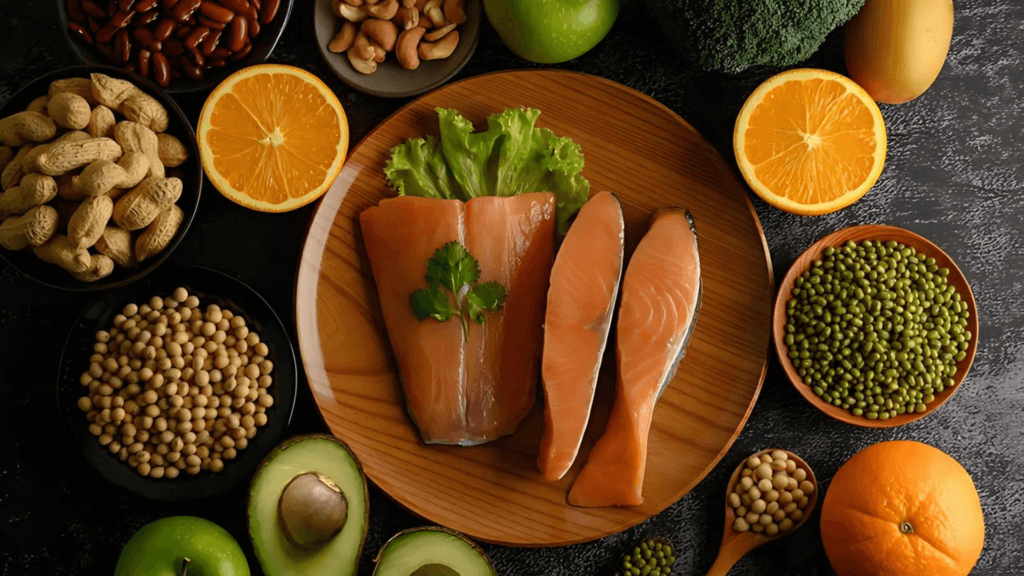
While omega-6 fatty acids are essential for health, an imbalance with omega-3 fatty acids can promote inflammation. It’s important to maintain a balanced ratio of omega-6 to omega-3 in your diet.
| Vegetable Oils | Includes corn oil, soybean oil, sunflower oil, which are high in unhealthy fats. |
| Processed Foods | Foods made with these oils, such as baked goods and snacks, often contain unhealthy fats. |
Sources:
Vegetable oils (e.g., corn oil, soybean oil, sunflower oil)
Processed foods made with these oils
Benefits of Anti-Inflammatory Fats for Football Players
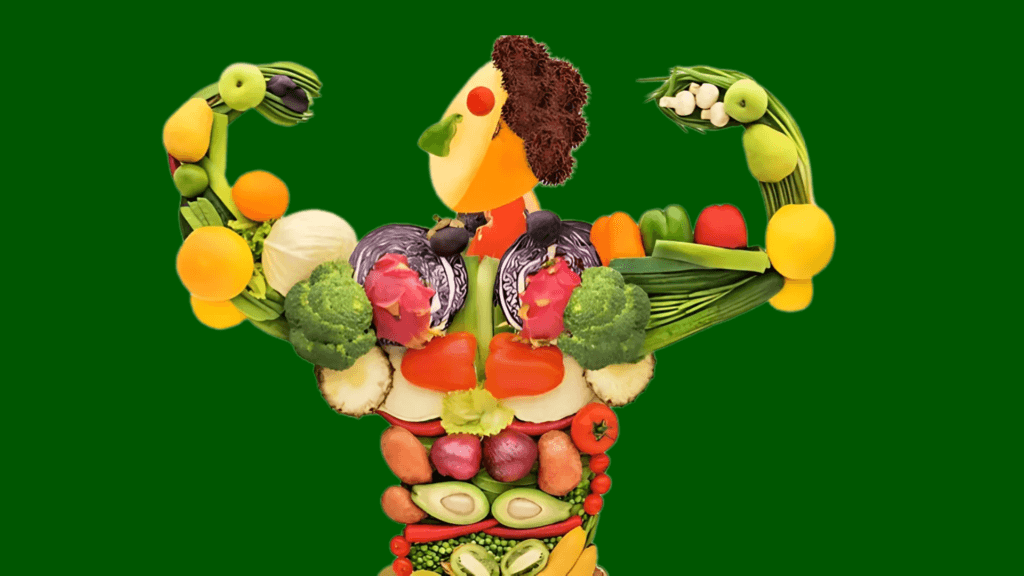
| Reduced Inflammation | Helps alleviate soreness and stiffness after training and games. |
| Enhanced Recovery | Supports quicker recovery times, allowing players to train harder and more frequently. |
| Improved Joint Health | Contributes to better joint function and mobility, essential for athletic performance. |
| Cardiovascular Health | Supports heart health, which is crucial for endurance and overall fitness. |
Reduced Inflammation: Helps alleviate soreness and stiffness after training and games.
Enhanced Recovery: Supports quicker recovery times, allowing players to train harder and more frequently.
Improved Joint Health: Contributes to better joint function and mobility, essential for athletic performance.
Cardiovascular Health: Supports heart health, which is crucial for endurance and overall fitness.
Nutrient Density
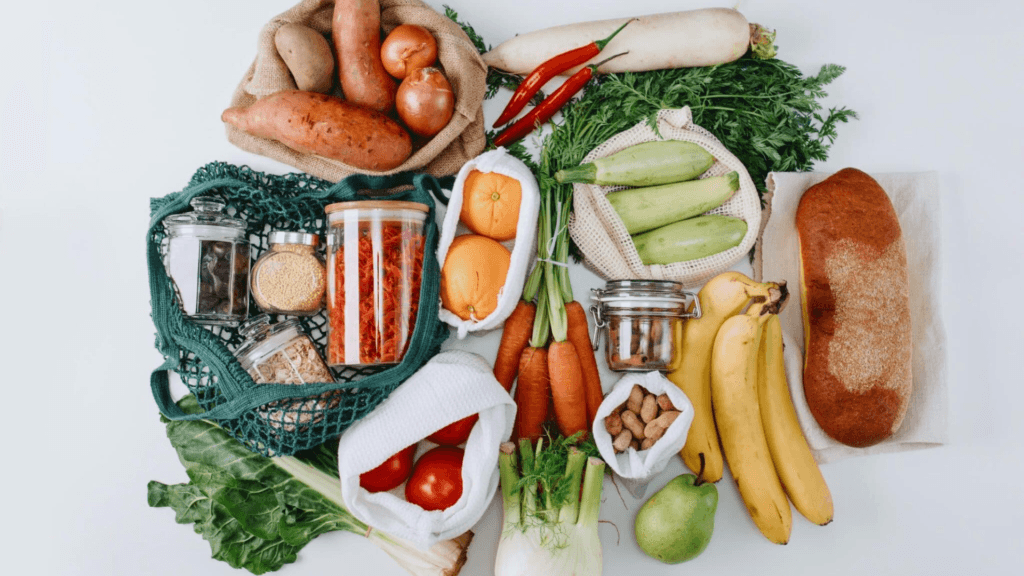
Choose whole, minimally processed foods to maximize nutrient intake
| Vegetable Oils | Includes corn oil, soybean oil, sunflower oil, which are high in unhealthy fats. |
| Processed Foods | Foods made with these oils, such as baked goods and snacks, often contain unhealthy fats. |
Focus on colorful fruits and vegetables
Limit added sugars and sodium
How to Prepare a Professional Football Player’s Balanced Diet Plan
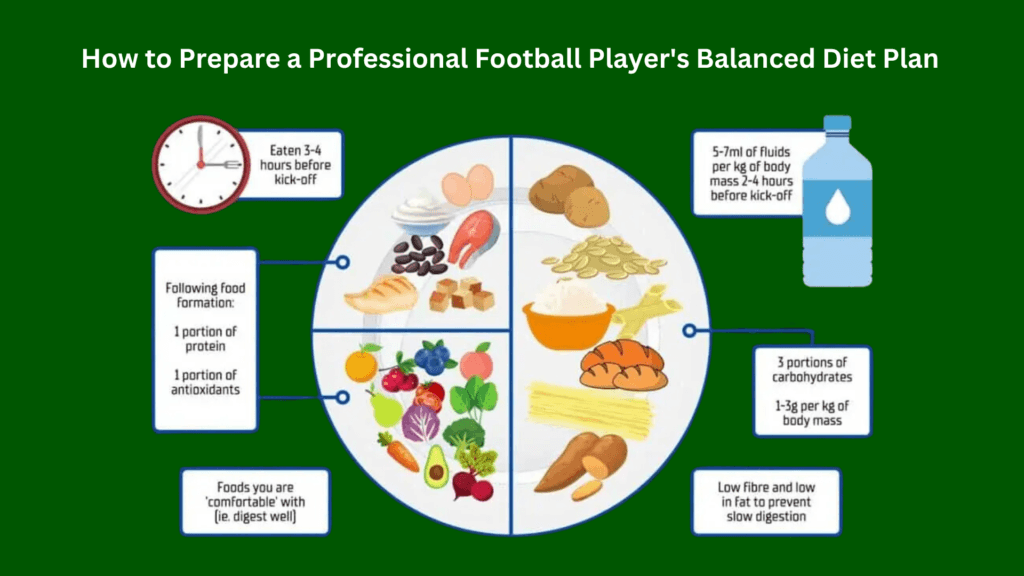
| Assess Individual Needs | Consider age, weight, activity level, and goals when designing a nutrition plan. |
| Create Meal Plans | Include a variety of foods from all food groups to ensure balanced nutrition. |
| Monitor Progress | Adjust the diet based on performance and recovery to meet changing needs. |
- Assess Individual Needs: Consider age, weight, activity level, and goals.
- Create Meal Plans: Include a variety of foods from all food groups.
- Monitor Progress: Adjust the diet based on performance and recovery.
Recommended Meals for Post-Game Recovery
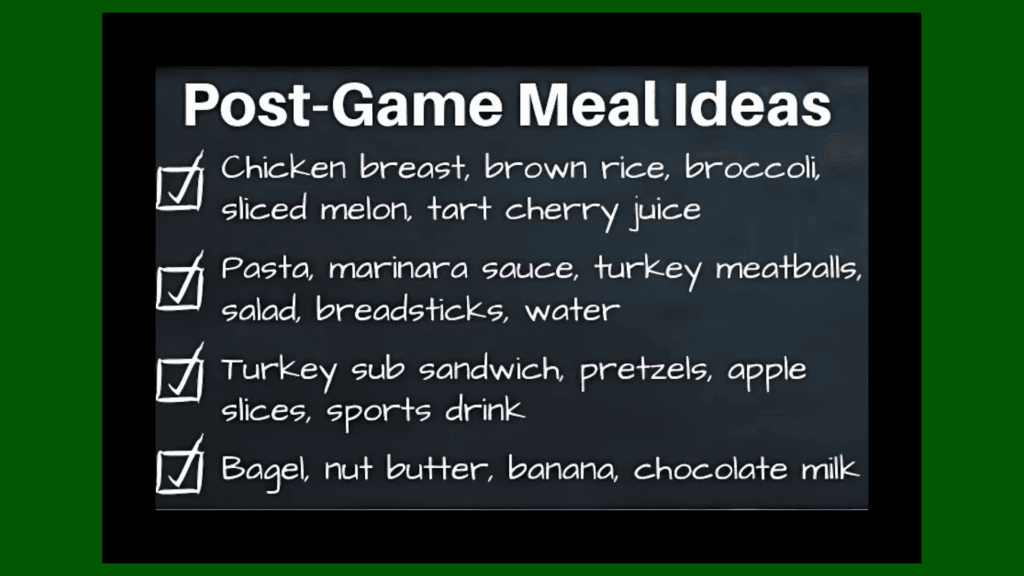
| Grilled Chicken with Quinoa and Vegetables | Balance of carbohydrates and proteins to replenish energy and repair muscles. |
| Smoothie with Greek Yogurt and Fruits | Includes nutrients for muscle recovery and energy replenishment. |
| Turkey Sandwich on Whole Grain Bread | Provides protein and complex carbs for recovery. |
Meal Ideas: Grilled chicken with quinoa and vegetables, a smoothie with Greek yogurt and fruits, or a turkey sandwich on whole grain bread.
Focus on Recovery: Include a balance of carbohydrates and proteins to replenish energy stores and repair muscles.
By following these guidelines, football players can optimize their nutrition to enhance performance, support recovery, and maintain overall health.
Conclusion : A football player’s diet must be carefully crafted to fuel their body with the right nutrients, enabling them to perform at their peak, maintain endurance during intense training and matches, and recover quickly. The optimal diet for a football player consists of a wide array of nutrient-rich foods that not only provide ample energy but also support muscle development and overall health.
People also ask
1.What Constitutes the Optimal Diet for Football Players?
A well-balanced diet for football players should incorporate high-quality protein sources distributed throughout the day in properly timed meals and snacks. According to Machowsky, consuming large amounts of protein in a single meal may not be as effective for utilization. Excellent protein options include chicken, turkey, lean red meats, beans, dairy, eggs, and fish.
2.What are the best foods to eat for football?
The best foods for football players are those that provide a balance of complex carbohydrates, lean proteins, healthy fats, vitamins, and minerals to fuel performance, support muscle recovery, and promote overall health.
Also read: Strong Safety Position In Football

Leave a Reply